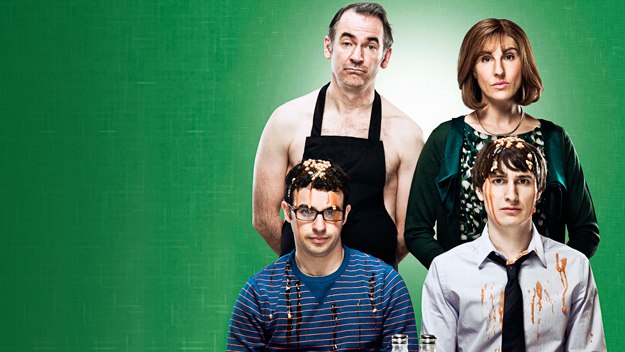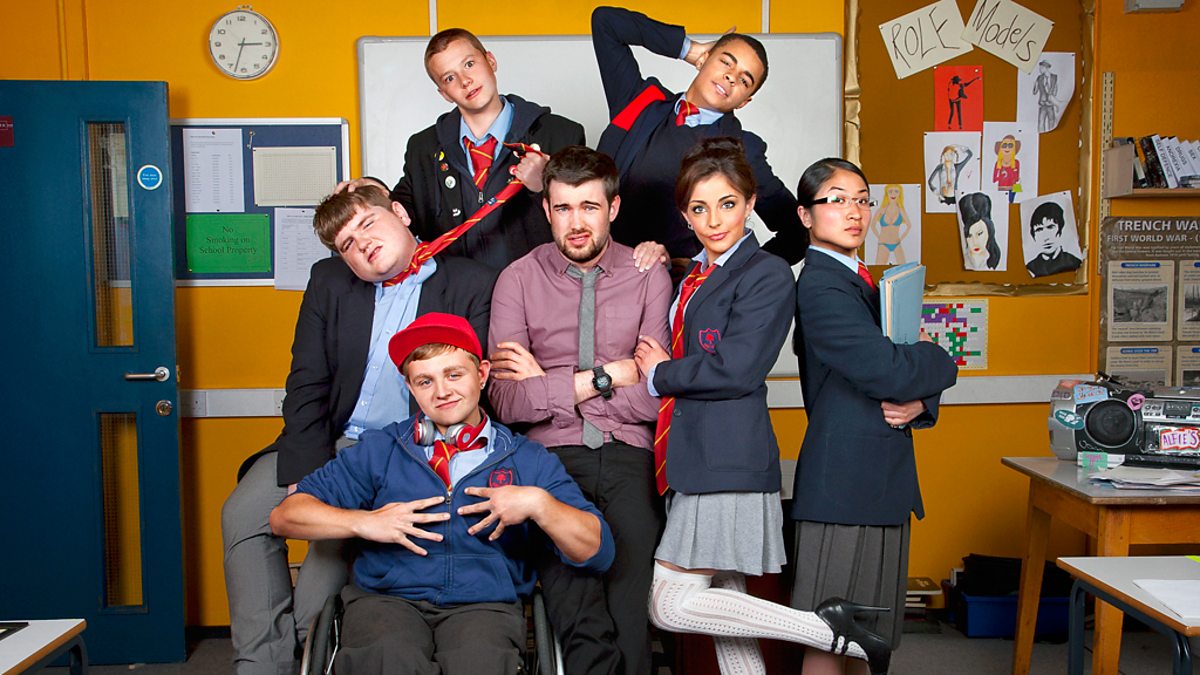The soundtrack in the scene is utilized to add a feeling of intensity and urgency to the battle, which is typical or the action-adventure genre. The drumbeat builds while Cage is in the helicopter in order to create tension in the audience as they wait for the crescendo of the music, knowing that it will link up with the action of the scene. The music reaches its crescendo as Cage drops into the battle, using loud drums and bass to emphasize the chaos and intensity of the scene. The fact that the music sounded vaguely reminiscent of a blaring siren only added to the intense feeling the music was creating.
The mise-en-scene of the scene effectively constructs the environment of war through costume and prop use, shown partly through the very soldier is wearing heavy armor and metal suiting. This costume choice conveys the dystopian nature of the film, in that that the armor is advanced and futuristic but also looks worn down and rusted. This mirrors the dystopian setting of the film since it shows an advanced future that is also troubled and in danger.
During the helicopter ride the editing was fairly slow, with shots lingering on character interactions and expressions for three to six seconds. This allowed us to feel the dread and tensity felt by the characters in the scene. When the battle began, however, the editing sped up as shots were cut down to only a few seconds a piece in order to mirror the confusion and speed of the scene.
The first camera angle is an establishing shot over Heathrow airport, conveying location to the audience. The scene also utilizes first person shots, such as when Cage was on the battle field and when he was about to drop from the helicopter, to put the viewer in his shoes and create sympathy in the viewer.
MediaBlog
Friday 11 March 2016
Tuesday 2 February 2016
Friday Night Dinner

Friday Night Dinner is a British television sitcom written
by Robert Popper and starring Tamsin Grieg, Paul Ritter, Simon Bird, Tom Rosenthal and Mark Heap. The comedy is focused on the regular dinner experience of a British Jewish family on each Friday night and is aimed at 18-35 year old men because it displays almost sentimental family comedy through the eyes of two sons. The first series originally aired from 25 February 2011 on Channel 4. Friday Night Dinner dinner in the Goodman family, reflecting writer and producer Robert Popper's own secular Jewish upbringing. The program offers narrative pleasures by introducing a confined story that resets every week, which leaves the viewer with a feeling of closure and satisfaction. The show also depicts a familiar setting for most people; an awkward or disastrous occasion with family. This taps into the sentimentality felt by older generations.
Bad Education

Bad Education was created by and stars Jack Whitehall as young teacher Alfie Wickers at
the fictional Abbey Grove School. The headmaster, played by Mathew Horne, works
alongside him. the series is aimed at 15-25 year old's because of it's immature, cultural comedy and irresponsible character. The series
launch it broke BBC Three's record for the highest-rated first episode of a
comedy. The second series premiered on BBC iPlayer as part of BBC Three's plans to
premiere all its scripted comedy programmes online. This experiment proved
successful, as the first episode of the second series received 1.5 million
requests. The third and final series of Bad
Education began transmission in September 2014, and concluded in October. Like Friday Night Dinner, Bad Education tells a confined story that resets each week. It also offers character archetypes which stereotype certain types of people; for example the unpopular, unlucky, unattractive kid and the unintelligent, loud, unintelligent bully. Each episode follows a similar structure: the character's
Tuesday 26 January 2016
Wednesday 20 January 2016
Subscribe to:
Posts (Atom)




